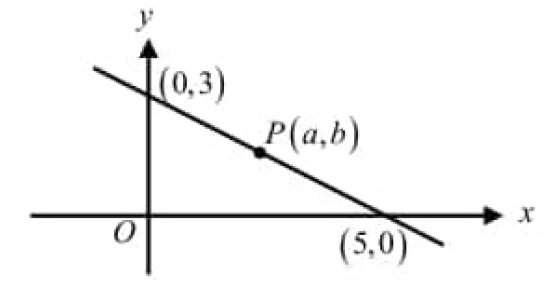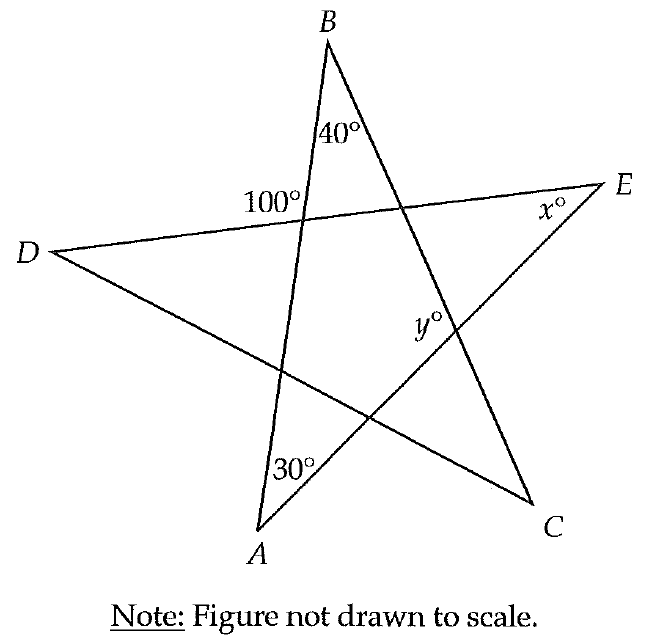FIND THE INDICATED TERMS OF THE ARITHMETIC SEQUENCE
To find the sum of an arithmetic series, we use the formulas give below.
Sn = (n/2) [a + l] (or)
Sn = (n/2) [2a + (n - 1)d]
nth term of arithmetic progression :
an = a + (n - 1)d
Total number of terms :
n = [(l - a)/d] + 1
a = first term, d = common difference, n = number of terms and l = last term.
Example 1 :
Given an = 4, d = 2, Sn = -14 find n and a
Solution :
an = 4
a + (n - 1) d = 4
a + (n - 1)2 = 4
a + 2n - 2 = 4
a + 2n = 6
a = 6 - 2n ---(1)
Sn = -14
Sn = (n/2) [2a + (n - 1)d]
-14 = (n/2) [2a + (n - 1)2]
-14 = (n/2) [2a + 2n - 2] ----(2)
By applying the value of a in (2), we get
-14 = (n/2)[2(6 - 2n) + 2n - 2]
-28 = n[12 - 4n + 2n - 2]
-28 = n[10 - 2n]
-28 = 10n - 2n2
2n2 - 10n - 28 = 0
Dividing it by 2, we get
n2 - 5n - 14 = 0
(n - 7) (n + 2) = 0
n = 7 or n = -2 (not admissible)
By applying the value of n in (1), we get
a = 6 - 2(7)
a = 6 - 14
a = -8
Hence the values of a and n are -8 and 7 respectively.
Example 2 :
Given a = 3, n = 8, Sn = 192 find d
Solution :
Sn = 192
Sn = (n/2) [2a + (n - 1)d]
192 = (8/2) [2(3) + (8 - 1)d]
192 = 4 [6 + 7d]
192/4 = 6 + 7d
48 = 6 + 7d
48 - 6 = 7d
7d = 42
d = 42/7 = 6
Hence the value of d is 6.
Example 3 :
Given l = 28 , S = 144 , and there are total 9 terms. Find a
Solution :
Let "l" be the last term or nth term of the series.
l = tn = 28
tn = a + (n - 1)d
a + (9 - 1)d = 28
a + 8d = 28 ----(1)
S9 = 144
Sn = (n/2) [2a + (n - 1)d]
(n/2) [2a + (n - 1)d] = 144
(9/2) [2a + 8d] = 144
[2a + 8d] = 144 ⋅ (2/9)
2a + 8d = 32
a + 4d = 16 ------(2)
(1) - (2)
a + 8d = 28
a + 4d = 16
(-) (-) (-)
---------------
4d = 12
d = 3
By applying the value of d in (1), we get
a + 8(3) = 28
a + 24 = 28
a = 28 - 24 = 4
Hence the first term is 4.
Kindly mail your feedback to v4formath@gmail.com
We always appreciate your feedback.
©All rights reserved. onlinemath4all.com
Recent Articles
-
Digital SAT Math Problems and Solutions (Part - 134)
Apr 02, 25 12:40 AM
Digital SAT Math Problems and Solutions (Part - 134) -
SAT Math Resources (Videos, Concepts, Worksheets and More)
Apr 02, 25 12:35 AM
SAT Math Resources (Videos, Concepts, Worksheets and More) -
Digital SAT Math Problems and Solutions (Part 135)
Apr 02, 25 12:32 AM
Digital SAT Math Problems and Solutions (Part 135)

